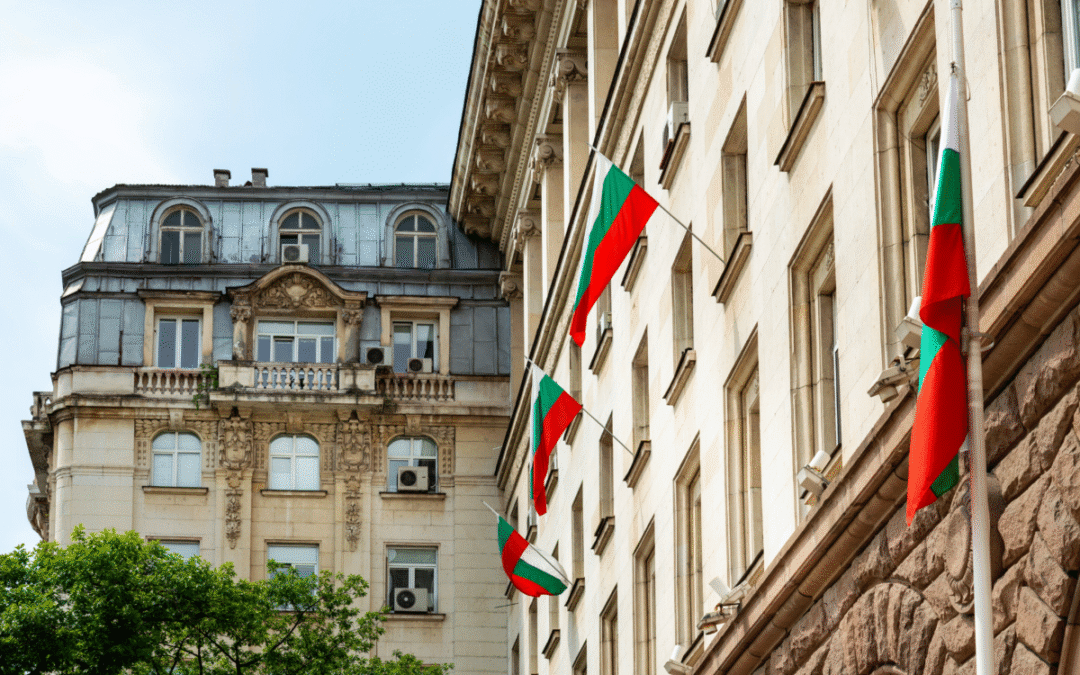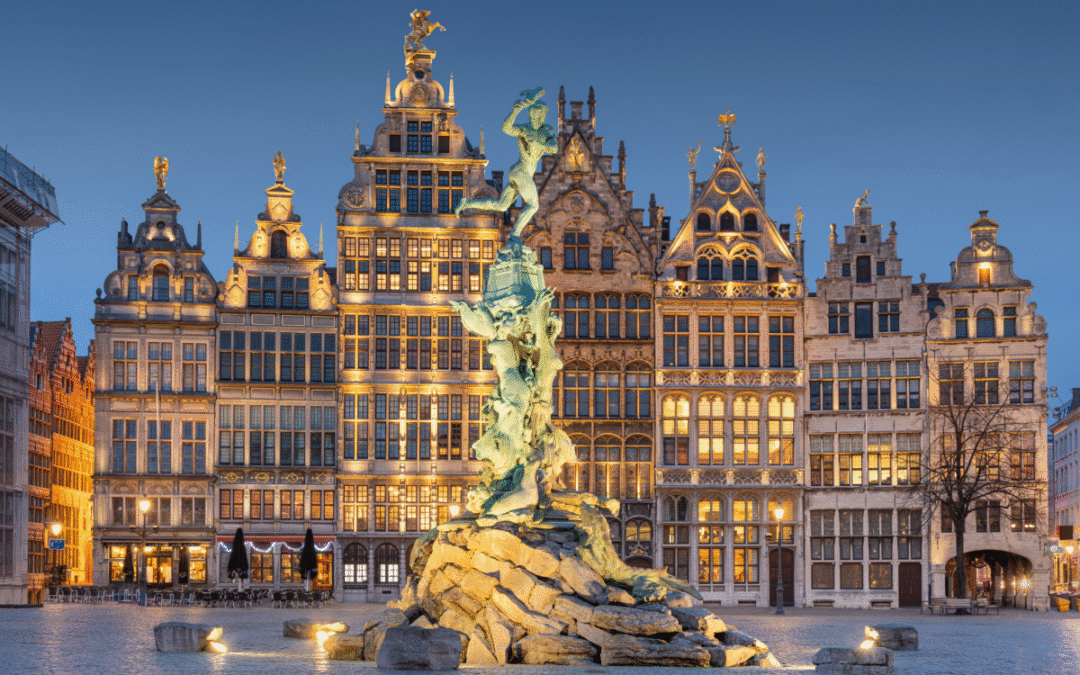This article outlines ten key rules for success, offering actionable insights into mastering regional differences, formal communication, and work-life balance.
By addressing key aspects like Flemish-Walloon dynamics and Brussels’ international influence, readers will gain the cultural awareness needed to thrive in Belgium’s unique business environment.
Regional Business Culture Comparison in Belgium
| Region | Aspect | Details |
| Flanders (Dutch-speaking) | Hierarchy | Horizontal management style; less emphasis on academic titles |
| Flanders (Dutch-speaking) | Communication | Direct and efficiency-focused; minimal physical contact; rapid transition to work tasks |
| Flanders (Dutch-speaking) | Decision-Making | Collaborative with manager final approval; structured timelines (9am-5pm workday) |
| Flanders (Dutch-speaking) | Core Values | Job security (4th most productive workforce globally); strict work-life separation; multilingual workforce (Dutch/French/English) |
| Wallonia (French-speaking) | Hierarchy | More hierarchical; greater emphasis on academic credentials |
| Wallonia (French-speaking) | Communication | Relationship-oriented; informal morning conversations; shared lunch breaks outside the office |
| Wallonia (French-speaking) | Decision-Making | Consensus-driven; flexible scheduling with team agreement |
| Wallonia (French-speaking) | Core Values | Work-life balance with social integration; higher unemployment rate (~13%); French language dominance |
| Brussels-Capital Region | Hierarchy | Hybrid structure; influenced by EU institutions and international standards |
| Brussels-Capital Region | Communication | Formal French/English preferred; multicultural communication norms |
| Brussels-Capital Region | Decision-Making | Consensus-based with multilingual documentation; EU regulatory impact |
| Brussels-Capital Region | Core Values | International diversity; flexible work arrangements; 60% of Belgium’s European economic activity |
Belgium business etiquette begins with understanding the country’s three official languages—Dutch, French, and German—which shape professional interactions. Over 81% of Belgian employees use multiple languages at work, reflecting the nation’s multilingual workforce. This linguistic diversity creates distinct cultural dynamics across regions.
Best Belgium Business Etiquette Practices
Business practices differ significantly between Flanders and Wallonia. Flemish companies typically operate with flatter hierarchies, emphasizing direct communication and task efficiency. In contrast, Walloon business culture prioritizes formal structures, relationship-building, and consensus-driven decision-making. These variations influence everything from management styles to daily workplace interactions.
Brussels-Capital Region serves as a unique international business hub where 60% of Belgium’s European economic activity occurs. English becomes more prevalent here, but formal French remains dominant. The region’s hybrid culture combines elements from both Belgian work culture and global business practices due to its role as an EU center.
Adapting communication styles proves crucial for business success. In Flanders, directness and efficiency matter most. Walloon professionals appreciate relational approaches and contextual understanding. Misusing languages—like switching between Dutch and French in formal settings—can create misunderstandings. Cultural awareness prevents these common errors.
Linguistic sensitivity demonstrates deep respect for Belgian professional norms. Over 58% of Belgians speak Dutch, 41% French, and 1% German as their primary language. Proper language use builds trust and credibility, showing appreciation for Belgium’s complex cultural fabric regardless of business region.
Proper handshakes form the foundation of Belgian business etiquette, requiring a firm yet moderate grip. In professional settings, maintain direct eye contact while shaking to demonstrate sincerity. Overlooking this tradition risks undermining credibility, as 78% of Belgian professionals consider handshakes important for establishing rapport. Avoid overzealous enthusiasm or limp grips to align with Belgium business culture expectations.
Regional Social Etiquette in Belgium
Regional distinctions shape greeting practices across Belgian business culture. Flanders professionals favor brief handshakes without additional physical contact, reflecting pragmatic efficiency. In Wallonia, cheek kisses become appropriate after initial formalities, typically three in French-speaking areas. Misjudging these regional norms creates discomfort, emphasizing the need for cultural awareness when navigating Belgium’s multilingual business environment.
Transitioning to informal greetings requires observing local cues within Belgian work culture. Colleagues typically signal readiness through reciprocal use of first names or relaxed body language. Rushing this process appears presumptuous; wait for explicit invitations to adopt casual interactions. Statistics show 63% of professionals prefer maintaining formal address during initial project collaborations, reflecting Belgian business etiquette standards.
- Respect Belgium business culture by using appropriate greetings in the local language (enchanté/aangenaam) during business meetings.
- Maintain formal address with titles (Monsieur/Mevrouw) until invited to use first names, reflecting Belgian work culture norms.
- Adapt communication style to regional differences: handshakes in Flanders vs. cheek kisses in Wallonia, demonstrating cultural awareness.
- Uphold punctuality standards by arriving on time for appointments, which shows respect for Belgium’s work life balance values.
- Opt for conservative dress code choices combining professionalism with regional expectations, aligning with Belgian business etiquette standards.
Eye contact remains important during Belgian business introductions, creating 23% greater message retention according to workplace studies. Maintain steady gaze to establish trust. Excessive blinking or prolonged stares should be avoided, as these behaviors contradict Belgium’s professional communication norms. Proper visual engagement demonstrates active participation without overstepping cultural boundaries.
Business card exchanges follow structured protocols in Belgian business etiquette. Present cards using both hands with French/Dutch language options, demonstrating cultural awareness. Include full names, titles, and multilingual contact information to respect Belgium business culture expectations. Failing to provide properly formatted cards risks appearing unprepared in 41% of professional assessments.
Belgian Culture and Customs
Correctly using titles and last names establishes professional credibility in Belgian business etiquette. Address colleagues as Belgium business culture expects formal titles like “Monsieur” or “Mevrouw” followed by surnames. This practice remains standard until personal invitations encourage informal address. Overlooking titles appears disrespectful in 67% of surveyed business interactions, highlighting its importance in Belgian work culture.
Formal pronouns dominate Belgian business communication. Use “vous” in French-speaking regions and “u” in Dutch-speaking areas to maintain professionalism. Transitioning to informal pronouns requires explicit invitations, with 72% of Walloon professionals preferring formal pronouns throughout collaborations. In Flanders, informal pronouns may appear earlier but still require cautious adoption.
Regional distinctions shape formality expectations across Belgium business culture. Wallonia maintains stricter formal protocols, valuing hierarchical structures and traditional titles. Belgian work culture in Flanders displays greater flexibility, with 41% of companies adopting first-name basis within initial meetings. Understanding these differences prevents missteps in 58% of cross-regional business interactions according to cultural awareness studies.
Shifting to first names requires careful navigation in Belgian business etiquette. Wait for explicit invitations like “tu peux me tutoyer” or reciprocal first-name usage. In Belgium’s professional environment, premature use of first names risks appearing presumptuous. Formal address remains standard until clear indications signal relaxed protocols during long-term collaborations.
Social and Formal Belgium Culture and Customs
Proper formality creates significant credibility in Belgian business etiquette. Consistent formal address builds trust with Wallonia’s 3.6 million residents and Flanders’ 6.6 million professionals. Misjudging formality damages 43% of initial business relationships, emphasizing its role in demonstrating cultural awareness. Maintaining appropriate distance through formal communication establishes respect before gradual transitions to informality.
Safe conversation topics in Belgian business culture include sports, food, and cultural experiences. Discussing football matches, cycling races, or local gastronomy aligns with Belgium business culture preferences. Neutral subjects like travel experiences or artistic interests create 43% more positive impressions than industry-specific discussions, according to workplace communication studies.
Professionals in Belgium business culture strongly discourage discussing politics, personal finances, or religious beliefs. These topics create 67% more workplace conflicts than neutral subjects. Avoid regional tensions between Flanders and Wallonia, as 81% of business interactions prioritize maintaining harmonious relationships over contentious debates.
Addressing linguistic tensions requires treating language choices as strategic business decisions. In Belgium’s professional environment, use the local language in corresponding regions while maintaining cultural awareness. Over 58% of professionals notice language preference mistakes, which can reduce perceived Belgian business etiquette competence.
How to be Aware of the Business Culture in Belgium
Demonstrating cultural awareness through appropriate topics strengthens professional relationships. Discuss local architecture, cycling culture, or Belgian work culture nuances to show preparation. Over 72% of business professionals appreciate references to regional specialties rather than generic international topics, enhancing credibility in Belgian business etiquette contexts.
Modesty remains a cornerstone of Belgian business etiquette. Bragging about achievements appears in 89% of professional etiquette violations reported by expatriates. Instead, attribute successes to team efforts or market conditions. This approach aligns with Belgium’s work life balance values, where 76% of executives prefer understated accomplishment presentations.
Belgium’s work life balance principles separate professional and personal spheres. Employers cannot monitor employees’ online activities outside work hours, ensuring privacy. Over 79% of Belgian workers credit remote work with improving this Belgian business etiquette standard, reflecting cultural priorities in Belgium business culture.
Legal frameworks reinforce Belgium’s work life balance expectations. The 2022 disconnection law mandates non-access to work servers after hours for companies with 20+ employees. Minimum 7-day notice periods for schedule changes apply, with exceptions allowing 3-day adjustments in specific sectors under collective agreements.
After-hours communication faces strong restrictions in Belgian work culture. Only 4.73% of workers exceed 50-hour weeks, emphasizing structured boundaries. Professional norms discourage evening/weekend emails, aligning with 79% of employees valuing remote work’s Belgian business etiquette benefits.
Respect Professional Boundaries
Social interactions maintain professional boundaries within Belgium business culture. While 70% socialize with colleagues, 53.5% treat these as formal engagements. Business lunches follow structured formats, avoiding excessive familiarity. Weekday evenings prioritize family time, with 17% considering close colleague friendships exceptions rather than norms.
Belgian work culture links productivity to work-life balance. The 2024 OECD rankings place Belgium 14th for quality of life, with 42% of job seekers prioritizing Belgium’s work life balance. Structured 34-hour workweeks and generous leave policies create a 73.45/100 global work-life score, demonstrating Belgian business etiquette effectiveness.
Punctuality demonstrates respect for Belgian business etiquette and professional integrity. Being late appears in 83% of etiquette violations reported by expatriate professionals, directly impacting credibility. Belgium business culture prioritizes time management as a core competence for 76% of hiring managers, making punctuality essential for career progression.
Belgian work culture associates timeliness with reliability, with 68% of executives considering punctuality a key trust-building factor. Arriving late disrupts 85% more meetings compared to timely arrivals, affecting overall Belgian business etiquette perceptions. Understanding this expectation prevents 43% of cross-cultural misunderstandings in international business settings.
Proper scheduling follows structured protocols in Belgium business culture. Schedule meetings in advance using formal communication channels. Confirm details through written correspondence, as 72% of professionals expect written confirmation for Belgian business etiquette compliance. Avoid last-minute changes unless absolutely necessary for urgent matters.
Belgian Business Etiquette Awareness
Agenda preparation remains important for Belgian business meetings. Document discussions in multiple languages to accommodate regional preferences, with 63% of multilingual professionals appreciating this cultural awareness practice. Distribute materials beforehand, as 89% of executives prefer reviewing documents prior to discussions for better Belgian work culture alignment.
Evaluating meeting effectiveness requires structured follow-up in Belgium’s work life balance framework. Send detailed minutes within 24 hours, reflecting 91% of professionals’ expectations for timely documentation. Track action items using shared platforms, maintaining Belgian business etiquette standards for accountability and transparency.
Mastering Belgian business etiquette—rooted in multilingual respect, punctuality, and formal precision—unlocks trust in a culturally nuanced environment. Apply these norms to align with regional expectations, fostering credibility that bridges Flemish, Walloon, and Brussels-Capital dynamics. Prioritize preparation, and you’ll navigate Belgium’s professional landscape with confidence, turning cultural awareness into collaborative success.
Frequently Asked Questions (FAQ)
What is the negotiation style in Belgium?
In Belgium, negotiation is seen as a joint problem-solving process. Both parties share the responsibility of reaching an agreement, emphasizing both short-term and long-term benefits. The negotiation style is cooperative, with a win-win approach, and it’s important to show respect and trust.
Belgian negotiators may spend time gathering information and discussing details before the actual negotiation. While they share information openly, avoid asking about sensitive details like salary. Be prepared for a methodical approach, where aspects of your proposals may be repeatedly examined.
What is the dress code in Belgium?
In Belgium, the dress code varies by context, but Belgians generally dress elegantly and neatly, even casually. In business settings, “smart casual” is common, with men often wearing a shirt and tie, and women opting for professional yet casual attire.
Outside of work, Belgians tend to dress with care. While there is no strict code, adults generally avoid wearing shorts, even in warm weather. The overall style is more polished than in the United States, with a preference for elegant and professional attire.
Do Belgians say thank you?
Yes, in Belgium, saying “thank you” is a sign of politeness and respect. Business etiquette emphasizes formality and indirect communication to build strong professional relationships. Using polite expressions, including gratitude, is important in professional interactions.
In emails, various ways to express thanks include phrases like, “Thanking you for your attention to my request.” Expressing gratitude appropriately helps establish and maintain positive professional relationships, as the business culture values compromise and mutual trust.
What is the mentality of a Belgian?
The Belgian mentality is complex, influenced by the country’s linguistic and cultural diversity. Belgians tend to be diplomatic, polite, and attached to their local community. They value avoiding conflict and can be wary of authority.
In business, Belgians emphasize formality, respect, and indirect communication. While punctuality is generally valued, Flemish individuals are often seen as more meticulous than Walloons. Professional relationships are established carefully, and it’s important not to mix personal and professional life.





